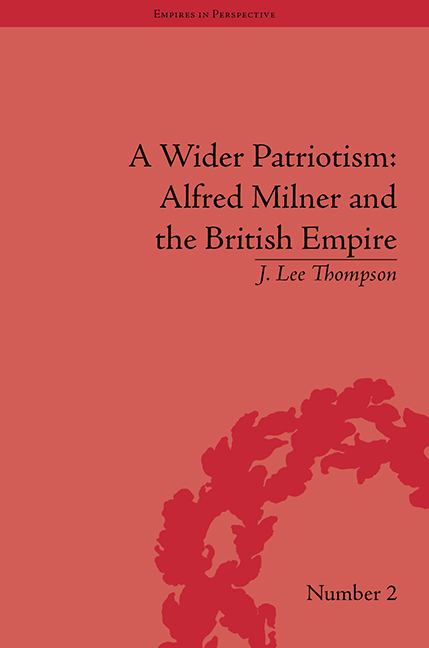Book contents
- Frontmatter
- CONTENTS
- Preface
- Acknowledgments
- Part I A Question about Which I Have Never Been Able to See the Other Side
- Part II Civilian Soldier of the Empire: South Africa
- Part III Constructive Imperialism
- 8 Constructive Imperialism
- 9 The Most Vital Link: Canada and the Empire
- 10 President of an Intellectual Republic: The Round Table
- Part IV Imperialism on the Anvil
- Notes
- Works Cited
- Index
9 - The Most Vital Link: Canada and the Empire
from Part III - Constructive Imperialism
- Frontmatter
- CONTENTS
- Preface
- Acknowledgments
- Part I A Question about Which I Have Never Been Able to See the Other Side
- Part II Civilian Soldier of the Empire: South Africa
- Part III Constructive Imperialism
- 8 Constructive Imperialism
- 9 The Most Vital Link: Canada and the Empire
- 10 President of an Intellectual Republic: The Round Table
- Part IV Imperialism on the Anvil
- Notes
- Works Cited
- Index
Summary
Of all the dominions, Milner paid by far the most attention to Canada. This is not surprising considering the key position the dominion held in most schemes put forward for imperial federation. Canada's grant of preference to British goods in the 1890s, under Wilfrid Laurier's Liberal Government, gave hope to a generation of imperialists that this might be the first step towards greater unity. However, in the 1897 and 1902 London Colonial Conferences held while Joseph Chamberlain was Secretary of State for the Colonies, Laurier proved less than cooperative and no substantial progress was made otherwise. Then in 1903 Balfour's failure to keep his pledge to maintain the small preference given Canadian grain during the Boer War led Chamberlain to leave the Cabinet and to announce his ill-fated Tariff Reform campaign.
Not long after Milner's return from South Africa, Amery and others began suggesting he visit the dominion, both in the interest of imperial union and as a remedy for the deep depression Milner felt (and continuously expressed privately and publicly) over Liberal policy towards South Africa. Violet Markham exhorted Amery somehow to divert Milner. ‘Commit him up to his neck in something – I don't care what. For I think his frame of mind critical and if he persists he will be, not as we hope a great man with a great future but a great man with a past – the most tragic of spectacles.’ As did Amery, Markham had high hopes that ‘contact with a big fresh vigorous country’ would have a ‘stimulating effect on his whole outlook’. Plans for a 1907 trip had to be abandoned but the next fall (briefed by Amery on Canadian trade matters with information from the economist W. A. S. Hewins's tariff commission) Milner extended his own, independent, imperial campaign to Canada.
Cognizant that his tour might be seen as meddling in purely Canadian affairs, Milner notified his old friend Lord Grey, the Governor General at Ottawa, that he thought he could ‘manage to avoid any appearance of interfering in local politics, even with an election pending’.
- Type
- Chapter
- Information
- A Wider PatriotismAlfred Milner and the British Empire, pp. 122 - 137Publisher: Pickering & ChattoFirst published in: 2014

